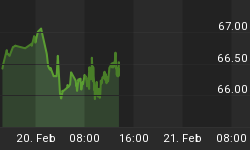The indexes below were discussed at a recent investment committee presentation:

Upon turning to this page, the speaker noted the 5-year returns show "an absolute flooding of the market and system with capital by central banks [QE, ESFS, LTRO...]. This has been an incredibly distortionary period." (The quotation is from notes, so is not exact.)
It is noteworthy that the speaker did not explain how these index returns are incredibly distortionary. The 5-year returns stand on their own as testament to how central banks have mangled markets.
Pursuing this point beyond what the speaker may have said, all prices are now phony. These preternatural mispricings have turned humans into laboratory specimens. Driving interest rates to zero has inflated stock markets. Commodity and house prices have been addled by feverish interference. Employment and wage markets have been and flogged and pilloried.
Even though stock markets have been inflated, that is not the same as aiding the economy. Such low rates have resuscitated businesses that should have failed. This has hurt better businesses that would have acquired the assets and customers of the failures. Continuing this train-of-thought across supply chains, borders, and currencies reveals many pricing distortions.
The central planners' decision to pull profits into the present will correspond to lower profits in the future. The certified experts surely believe their infallible model will prevent a profit recession. Their model will once again prove central bankers have the most inflated reputation since the ginsu knife.
Such a stark contrast between bond and stock returns over a five-year period is arresting. The investor may decide asset returns will regress to the mean. So, buy stocks. But, there is no hurry.
Before embarking on such an allocation, consider the artificial means by which bonds produced such sparkling returns. This cannot last, even though the stock market is still obviously priced for immaculate faith in central banks.
This is obvious since the central banks control the yield curve. At some auctions, they are the only buyer of government bonds. If investors in toto thought the issuers of sovereign debt and the central banks might fail to keep rates below 2.0% (for example: if the bid at a future U.S or German 10-year auction shoots up to 6.0%), stock markets would be 30% to 50% lower today.
The denouement of stock and bond markets may not be so sharp and so obvious as an instant 4.0% jump, but it will come. This future trauma is sometimes referred to as "The Great Reset." When the 10-year Treasury resets from 2.0% to 6.0% (the prediction is only directional) the betting here is the losses will be greater in the stock market than in bonds.
The major media generally restricts its investment advice to stocks vs. bonds. When the Great Reset hits, an investor holding cash will be well-positioned. The difficulty, real or psychological, is the price inflation (principal erosion) between now and the Great Reset. Gold, silver, and gold and silver stocks may be the best protection for principal, but that will be (as it currently is) a wild ride too, and (obviously) such investments are still considered eccentric, at best.
Frederick Sheehan writes a blog at www.aucontrarian.com

















